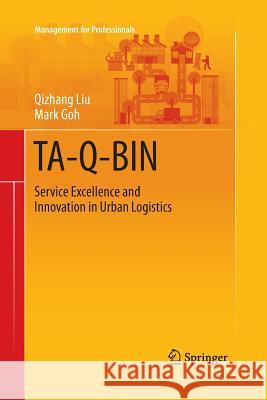Ta-Q-Bin: Service Excellence and Innovation in Urban Logistics » książka
topmenu
Ta-Q-Bin: Service Excellence and Innovation in Urban Logistics
ISBN-13: 9789811013102 / Angielski / Miękka / 2016 / 192 str.
Kategorie:
Kategorie BISAC:
Wydawca:
Springer
Seria wydawnicza:
Język:
Angielski
ISBN-13:
9789811013102
Rok wydania:
2016
Wydanie:
Softcover Repri
Ilość stron:
192
Waga:
0.29 kg
Wymiary:
23.39 x 15.6 x 1.09
Oprawa:
Miękka
Wolumenów:
01
Dodatkowe informacje:
Wydanie ilustrowane











